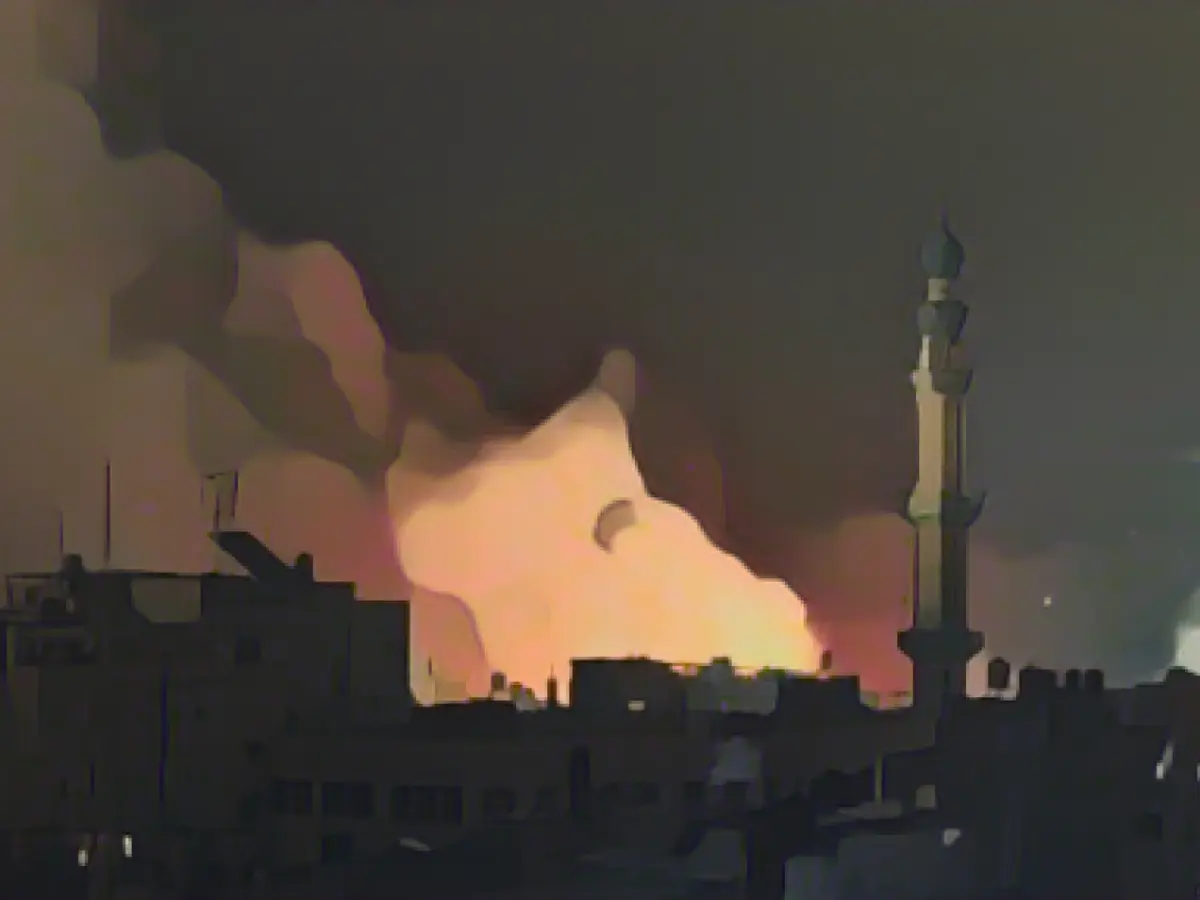Israel's Military Offensive: A Long, Cautious Call for Action
After calling for Israel to be more cautious in protecting civilians in Gaza, US President Joe Biden added, "I want them to focus on how to save civilian lives." While cautioning Israel not to "stop" the fight against Hamas, he urged them to be more thoughtful in their approach.
In an attempt to steer this volatile situation, US National Security Advisor Jake Sullivan met with Israeli Prime Minister Benjamin Netanyahu and Defense Minister Joav Gallant in Tel Aviv on Thursday. Echoing Biden's sentiments, Gallant confirmed that the war against Hamas would drag on for "more than a few months."
Conflicting Voices on the Battlefield
The US White House National Security Council Communications Director, John Kirby, aligned with this extended timeframe, stating that it aligned with previously shared expectations from Israel. Meanwhile, an Israeli army spokesman forecasted more intense battles ahead.
Reflecting these conflicting views, the Israeli Defense Forces reported 117 soldier casualties since the Gaza operation started, with the recovery of a French-Israeli hostage named Elya Toledano coming as a much-needed news of relief.
The Trigger: Hamas' Unprecedented Attack
The violent conflict between Israel and Hamas escalated in early October when Hamas, classified as a terrorist organization by the USA and EU, launched an unprecedented attack on Israeli towns and villages. In response, Israel retaliated with intense airstrikes on Gaza and a ground offensive, leading to around 1,200 reported deaths and 240 hostages.
Intense International Pressure
As the death toll and humanitarian situation worsened, international pressure on Israel to display increased consideration for civilians during its campaign in Gaza rose. As Israel's most significant ally, the USA was among those urging Israel to reduce the ferocity of its military operations.
Potential Transition Towards Lower-Intensity Operations
While US officials hesitated to commit to a specific timeline, communication Director John Kirby hinted at a possible transition from high-intensity operations to lower-intensity ones in the near future. This move would ensure that civilians in the Gaza Strip were less affected by the repercussions of ongoing operations.
Additional Insights
As the Israel-Hamas conflict rages on, the humanitarian situation in Gaza continues to worsen. The ceasefire agreement in January, 2025, marked a brief respite with Hamas beginning hostage releases and Israel allowing the return of Palestinians to northern Gaza. Reports suggest that hospitals and schools are still under attack, and the targeting of journalists and prevention of humanitarian aid add to the miserable plight of Gaza's residents.
On the international front, the EU and other nations have taken stances of condemnation or support for Palestine's hampered statehood. Meanwhile, regional tensions have flared between Israel, Hezbollah in Lebanon, Yemen's Houthi rebels, and Iran-backed groups, with increased military activity and airstrikes in these regions.




